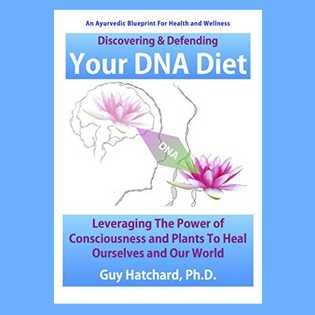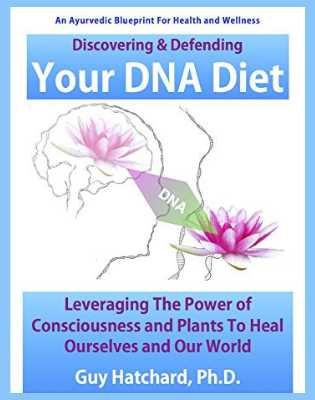From our unique perspective in New Zealand there is probably no more twisted tale of the pandemic than the transformation of medical ethics.
Due to our closed borders, New Zealand has so few Covid cases (18,000 at the time of writing) and almost no Covid deaths (53), that our pandemic medical history so far has been largely about isolation, vaccination, and testing.
The political history of the pandemic has been about control of our borders, the creation of fear, and public assurances of the absolute safety of mRNA vaccines.
In contrast, the official count of adverse effects of Pfizer Covid vaccination stands at 50,000 and the death toll proximate to vaccination at 130+.
Due to under reporting, both these figures are known to be huge underestimates.
The excess all-cause non-Covid deaths during the vaccine rollout has been reliably measured at 2000+.
https://www.bitchute.com/video/dASUoQ92PTbD
Alarming rise in illness following vaccination
Despite this, booster shots are being heavily advertised and mandated in the absence of unequivocal evidence of benefit, and the presence of ample evidence of an increased danger of adverse effects.
Nor at any point has there been any serious account of our lack of knowledge of the long term effects of mRNA vaccination. Certainly there is increasing evidence of harm from vaccination.
For example, painstakingly collected accurate data from the US military points to massive rises in disease rates in many serious categories of illness including a 3x rise in cancers.
There has been a concerted effort to keep this story out of mainstream media. The cover up is almost a bigger story than the actual data.
https://stevekirsch.substack.com/p/this-medical-data-from-the-us-dod
Along with reports of vaccine injury, there has been a steady stream of papers published recently which are beginning to elucidate very worrying mechanisms underlying vaccine injury.
Initial expectations were that after stimulating spike protein production sufficiently to induce an immune response, mRNA genetic sequences in the vaccines would dissipate rapidly, and therefore safely.
A study published in the journal Cell on 24th January 2022 shows that the mRNA sequences can persist in lymph node germinal centres for weeks causing greater spike havoc than Covid infection itself.
https://www.cell.com/cell/fulltext/S0092-8674(22)00076-9
The official reports of vaccine adverse effects in New Zealand are running at 30 times the rate of reported injuries from prior flu vaccines.
The Fact That This Has Not Rung Alarm Bells is Incomprehensible
The fact that the government has persisted with its saturation advertising announcing the safety and necessity of Covid vaccination is doubly concerning.
It is apparent from the failure to investigate alarming data, that the practice of medical ethics has transformed to become almost unrecognisable.
Medical Ethics
A common framework used when analysing medical ethics is the “four principles” approach postulated by Tom Beauchamp and James Childress in their textbook Principles of Biomedical Ethics.
It recognizes four basic moral principles, which are to be judged and weighed against each other, with attention given to the scope of their application. The four principles are:
- Autonomy – the patient has the right to refuse or choose their treatment. This is rooted in society’s respect for individuals’ ability to make informed decisions about personal matters with freedom.
- Beneficence – a practitioner should act in the best interest of the patient and their family. In other words, healing is the aim of medicine.
- Non-maleficence – to not be the cause of harm. Many consider this should be the primary consideration—that it is more important not to harm your patient, than to do them good, which is part of the Hippocratic oath that doctors take.
- Justice – concerns the fair distribution of scarce health resources, and the decision as to who gets what treatment.
In practice, however, many treatments carry some risk of harm. In some circumstances, e.g. in desperate situations where the outcome without treatment will be grave, risky treatments that stand a high chance of harming the patient could be justified.
This is because the risk of not treating is also very likely to do harm.
So the principle of non-maleficence (non-harm) is not absolute, and balances against the principle of beneficence (doing good).
This has particularly affected debates around the promotion to doctors by drug companies of strong narcotics such as Oxycodone which is highly addictive and whose overuse commonly leads to respiratory failure and death.
Application of Medical Ethics
It can readily be appreciated that the debate around how to apply medical ethics to medical practice has some grey areas and deficiencies.
Medical misadventure is now the third leading cause of death in the USA.
Has this led to an acceptance of risk that should in fact be avoided?
In large part the rules being applied to drug approval are in fact very strict.
Double blind trials are required. Lengthy periods of assessment are mandated.
Deaths following treatment are investigated and usually trials are suspended when these occur.
Generally for vaccinations, assessment takes around ten years and 2 deaths per million recipients would be the maximum allowed in a finally approved product.
In complete contrast, the pre-approval trial periods for Covid-19 vaccines have been of the order of 6 months.
The critical assessments of secondary effects have not been undertaken.
These are aimed to check that general health outcomes for trial participants such as cardiac conditions and cancers do not exceed population norms.
Note the US military data here. Clearly serious injury and deaths associated with Covid-19 vaccinations have exceeded the traditional limits by a massive margin.
Moreover outcomes proximate to vaccination reported through VAERS cover a very wide range of conditions.
Have professional medical bodies raised the alarm? No. Why?
Why Were Principles of Medical Ethics Ignored?
Initially there were reports that Covid-19 was a very serious illness with mortality rates as high as 5% mentioned.
The reports of mass deaths and lockdowns in Wuhan added to the perception that we were facing the worst pandemic since the 1918 flu. Figures as high as 180,000 deaths in New Zealand were predicted.
Fearing the worst, draconian lockdowns, border closures, and mass vaccination seemed to be not only justified but absolutely necessary.
The Principle of the Double Effect from medical ethics whereby beneficence is weighed against non-maleficence seemed to be almost irrelevant in the looming crisis.
This alarmist assessment rapidly dissipated.
Published studies put mortality rates well under 1%, there was a realization that serious Covid outcomes and deaths primarily occurred among those who were already seriously ill or physically weak due to other causes including advanced age—in other words Covid was not the sole cause of deaths.
During the early months of 2021, it was also apparent that mRNA vaccines waned in effectiveness rapidly and did little to stop transmission.
The only principles of medical ethics that seemed still to be appropriate were those of justice and beneficence.
Reports suggested that Covid vaccination reduced the severity of illness; might it not be beneficial to the individual and save our over-stretched health service from becoming overwhelmed by unvaccinated Covid patients, thereby advantaging patients requiring treatment for other conditions?
Despite doubts about the outcome data and mounting evidence of vaccination harm, the answer given to this by the New Zealand government was a big YES.
The government pointed to some high overseas patient loads and decided to mandate vaccination to the extent that the unvaccinated would lose their right to employment.
They thereby overruled the first principle of medical ethics autonomy—patient choice, a degree of coercion that ensured vaccination rates in New Zealand rose above 90% among those eligible.
Reports of Vaccine Injury in New Zealand
The Health Forum NZ is a FB, Telegram, and MeWe site with 50,000+ members which has served as a meeting and information place for vaccine injured.
Users are able to report their personal experiences. New Zealand has a population of 5 million so Health Forum NZ members comprise 1% of the population.
The Health Forum NZ has received reports of 600+ deaths proximate to vaccination.
300+ of these have been investigated and confirmed by NZDSOS (NZ Doctors Speaking Out on Science) a voluntary group of medical doctors.
Looking through the thousands of reports of vaccine injury and death throughout the Health Forum NZ FB site, one is struck not only by the serious nature of vaccine injuries but particularly the multiple experiences of GPs and hospital doctors dismissing serious injuries and conditions as unrelated to vaccination without careful consideration.
The most common among the reports of serious vaccine injury are chest pain, arrhythmia, shortness of breath, and related experiences of persistent extreme fatigue and debility.
Sometimes these develop as cardiac events, clotting, stroke, and death. Many result in loss of capacity to work.
They are heart wrenching stories, but the rejection of responsibility by medical services adds another level of concern when reading the accounts.
There are many experiences of being assured that they were over anxious and being sent home with an aspirin, only to suffer immediate complications necessitating admission to hospital care.
Some people reported that many others were in hospital with similar outcomes at the same time.
Sometimes sufferers are made to wait many hours or even more than 24 hours in rare cases before being seen by a doctor, only to find that the doctor is uninterested and dismissive when he hears that the injury followed vaccination.
This is not universal, some, probably most, doctors and medical staff are very caring and concerned.
Nevertheless reports of dismissal of serious injuries as inconsequential by GPs and hospital staff are sufficiently numerous to form a pattern that demands further consideration.
The NZ Government Stonewalled Calls for Accurate Data Collection
Our government decided early on not to take the reporting of adverse effects following vaccination seriously.
They denied repeated requests to make the reporting of adverse events mandatory with the result that there has been no way of knowing the extent of vaccine injury.
Medsafe already knew that the voluntary system in place had a history of catching only 5% of adverse events.
Their decision flouted the most important principle of medical ethics non-maleficence—do no harm.
It also enabled the government and the whole medical establishment to avoid any public discussion of adverse events.
Jacinda Ardern famously arranged for the hurried deletion of over 30,000 reports of adverse events from her FB account.
Why did our authorities do this?
The government opted for a stand-alone vaccination strategy because they believed assurances of safety and efficacy from Pfizer.
Consequently they wished to avoid anything that would lead to vaccine hesitancy.
Almost immediately and before any decision on mandates, we found out vaccine effectiveness waned rapidly and did little to reduce transmission, directly contradicting Pfizer trial results.
The Government and the Ministry of Health switched arguments— “millions of people had received the vaccine worldwide so it must be safe and effective”.
A vacuous argument from a scientific point of view.
Almost a hundred thousand people were prescribed Thalidomide before it was realised that it was unsafe.
The medical ethics criteria of justice—public good and beneficence—patient well being, are not usually weighed in the absence of considerations of maleficence and autonomy.
Thus the stance of the government, to sweep vaccine injury under the carpet, departed radically from previous ethical practice.
This kind of departure is only entertained in times of war when the threat to the nation and the whole population is judged to be sufficient to mandate military service call up and tolerate the inevitable heavy casualties of conflict. This condition was of course not met in any way by the Covid pandemic.
Why Didn’t Multiple Reports of Injury Raise the Alarm?
The mounting numbers of individuals reporting vaccine injuries to their GPs and at hospital EDs, should have raised alarm bells to a point that detailed investigation of their actual extent became a priority.
Instead and inexplicably, hiding their occurrence rose to the top of the government’s agenda.
Jacinda Ardern lashed out at a journalist asking questions about the death of a 17 year old girl suffering a stroke and dying immediately following vaccination, labelling the journalist as irresponsible and denying any relationship with vaccination before there had been any time to assess causation.
This set the tone for the whole machinery of government including the Ministry of Health and the medical profession.
A few medical professionals were disciplined for raising similar questions. This was enough to discourage any public consideration of the ethics involved.
BUT it should have been otherwise.
Ethical considerations extend to individual judgements.
Every medical professional exposed to repeated presentations of vaccine injury should have blown the whistle.
The important point to note is that the quality and extent of life of thousands of individuals including young children are at issue.
There is and always has been an ethical imperative to provide proper informed consent, honour personal choice, and protect them from harm.
It is evident that there has been a concerted attempt within the medical establishment and the government to change this and normalise high casualties of a novel vaccination.
The NZ Government Doubled Down on Ignorance
The government decided to further reverse ethical practice.
Dr Ashley Bloomfield, Director General of Health, has the personal responsibility for granting vaccine exemptions to those injured by the first shot.
In almost all cases, he refuses exemptions including among those hospitalised and still ill, even when there is supporting documentation from specialists.
Now that extensive research has concluded that the outcomes for Omicron patients are similar for both the vaccinated and unvaccinated, there is no longer a valid scientific argument for justice and beneficence.
All ethical arguments for mandates are moot, but why is there still no move to protect individuals from the adverse effects of vaccination?
Criminal Liability at Stake
All of our arguments point to a deliberate attempt by a number of key players to pervert the application of medical ethical principles.
In this situation, pretending to be an uninvolved bystander is not an ethical option.
As mounting evidence has been ignored, government decisions verge towards the criminal.
Deliberately suppressing debate is a further step into criminal territory. The historical precedents are obvious.
There are floundering attempts by the media to label mandate protestors as variously right-wing extremists and uneducated Luddites.
Considered in the light of scientific publications, this appears as prejudice and a weak attempt to avoid censure for poor reporting.
The arguments in support of mandated vaccination are still being presented to the public through strident political rhetoric unsupported by science publications.
The government must realise that there are serious scientific and ethical failings involved.
It must mount an honest attempt to change the debate from politics to science, and adjust public policy accordingly.
At this stage, anything less is culpable.
Guy Hatchard PhD was formerly a senior manager at Genetic ID a global food testing and certification company (now known as FoodChain ID)







